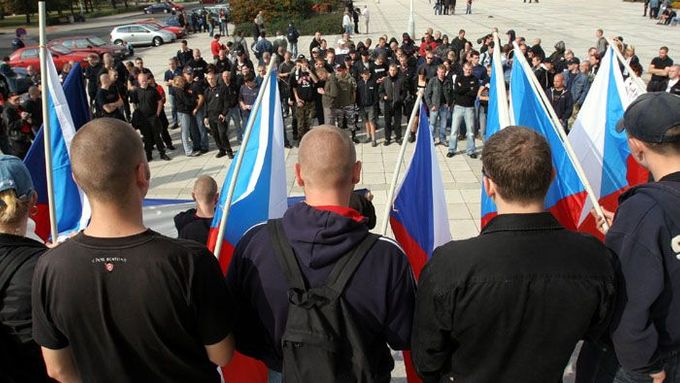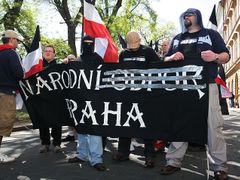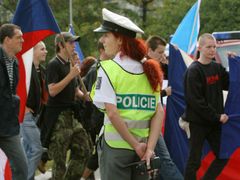Brno - Authorities in the Czech Republic cannot ban a rally or a march simply on the grounds of it being organized by extremists or right-wing radicals, stated The Supreme Administrative Court of the Czech Republic.
The judges gave a thorough explication of their verdict in the case of an over-ruled ban on the "anti-war" march of the extreme right-wing Young National Democrats (MND) through Prague's old Jewish Town, which has been called for this coming Saturday.
READ MORE: Fears of Kristallnacht showdown loom over Prague
In it, the judges defined the procedure to be followed by the authorities when they want to stay within the legal limits while trying to prevent the actions of the extremists.
When circumstances matter
Plans to hold the November 10 rally, reffered to by its organisers as a protest against Czech military presence in Iraq, provoked severe criticism from many politicians as well as concerned civil society organizations and individuals.
The Prague city hall originally banned it simply because they found MND to be an extremist organization. That, however, is not enough, said the judges.
Other circumstances of the planned event must be thoroughly considered. In this case, the fact that the rally is to take place on the anniversary of the infamous Kristallnacht (a 1938 prequel to the Holocaust in Nazi Germany) and is to pass through the streets of Prague's Jewish Town could be a sufficent reason for it to be banned, opined the judges.
"Such conclusion can be further underlined by other relevant circumstances- for example by the fact that the rally is to take place on Saturday, which according to the Jewish religion is a feast day, when worshippers gather in synagogues," the judges added.
Extremists have their rights too
This week's court decision was also based on the breakthrough judgements of the European Court of Human Rights and on verdicts of the courts in Germany and the USA.
The law on public assemblies, the court stated, is here to protect those who want to protest. It protects the minorities and defends them against being edged out from democratic debate.
Therefore, to ban the rally or march is possible only in very exceptional cases.
"Even when people belonging to extremist groups or expressing extremist opinions are considered, it can not be a priori ruled out that they have the intention to use their right within the confines of the law," stated the Senate of the Supreme Administrative Court headed by Judge Petr Příhoda.
Dismissal on the spot
When without a clear proof that a rally or a march will serve to other purposes than those stated, the authorities have, according to the court, no other possibility but to dismiss the gathering on the spot. That is a widely used procedure in the Czech Republic.
"Modern democracy represents the rule of the majority with respect to the rights of the minorities and it must be ready to confront even minor opinions which are at the time inconvenient to it," the judges mentioned in their verdict.
According to the court, any restriction of political rights such as the right of assembly could potentially lead to edging out the inconvenient minority from public discussion.
The rally in question still illegal
The Supreme Administrative Court decided that the march through Jewish town as originally announced to the authorities cannot take place.
The reason, however, was none of what the court explained about extremism and circumstances of their actions but the fact that the event was not lawfully announced. It transpired last week that the MND had not been duly registered at the time it announced the rally for the first time.
In the meantime, MND announced it is pushing ahead with its plans. Massive participation of like-minded extremists from abroad is expected.
Many people, however, including some politicians, are willing to prevent the rally at least from marching through the Jewish Town and have already announced their own plans for counter-rallies.
Authorities also announced they are ready and have mobilized some 1600 men and women in uniform to maintain order.



